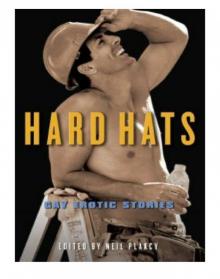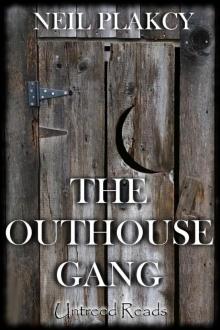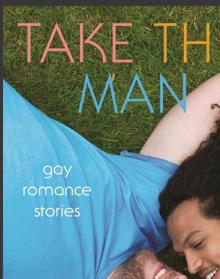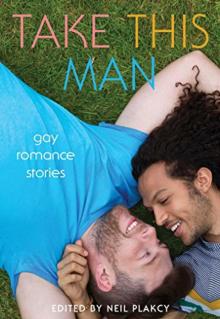- Home
- Neil Plakcy
Zero Break Page 2
Zero Break Read online
Page 2
I hung up and dialed the number Harry had given me. When a woman answered I asked, “Is this Anna Yang?”
“Who’s this?” a woman asked, with a strong Chinese accent.
“My name is Kimo Kanapa’aka,” I said. “I’m a police detective. Is this Ms. Yang?”
“Yes. Yes, that’s me.”
“Do you have the children with you?”
“Yes, it’s my week. What is this about? Where’s Zoë? Is she all right?
I gave Ray a thumbs up, and relaxed. It was good to know that the two little girls hadn’t been kidnapped or killed. “I will tell you what I can, if you can just answer a few questions for me. Do you still reside at the house on Lopez Lane?”
“No. Can you please tell me what’s going on?”
“I’m afraid Ms. Greenfield has been killed,” I said. “Someone may have broken in during the night in a home invasion robbery.”
“My God…” I heard her choke back a sob. “Who would do such a thing? Zoë is such a good person.”
“I’d like to talk to you about her,” I said. “Can I reach you at this number?”
“I have to see her. I’m coming right over.” She ended the call before I could say anything else.
HOME INVASION
Ryan and Larry, two crime scene techs we often worked with, showed up to take fingerprints and look for trace evidence. Ray and I continued our search of the house, documenting everything we saw with notes and digital photos. There was no murder weapon evident, so I had the crime scene techs make sure to search the trash, inside and outside.
Ray and I could guess from the stab wounds that a knife had been used to kill Zoë Greenfield, so we inventoried all the knives in the household, then looked for evidence that might tell us more of what happened that night. Had the deceased eaten dinner at home? An empty microwave popcorn bag, an open DVD case on the player, a pair of wine glasses or beer mugs—all those are clues that can explain a sequence of events resulting in murder. There was a single glass in the sink, with the residue of what smelled like iced tea, and the TV section from the Star-Advertiser was folded open to Sunday night.
As the female ME’s tech bagged Zoë Greenfield’s hands and feet, I asked if she had an idea of time of death. “Doc Takayama will have to tell you that.”
The male tech said, “Given the temperature in here, I’d say you’re looking at six to twelve hours ago.” She glared at him. It was obvious she was new, because he added, “We can give them a window so they know where to get started.”
Ryan, Larry, Ray and I were all dripping with sweat by then. Working around the body, they began taking samples from the carpet as Ray and I went into the kitchen to consider.
Six to twelve hours before gave us a window of between 11 pm and 5 am the night before. “What do you think?” Ray asked. “She made herself a big glass of iced tea and settled down to watch TV in her T-shirt?”
“I think she must have finished her program, put the glass in the sink, and went to bed,” I said. “She was either asleep or drowsing and she heard the door smash in.”
“Why didn’t she call 911, hide in the bathroom?”
I shrugged. “Who knows? Maybe she heard someone outside, went to the living room to check, and didn’t have time to get away once the burglar broke the door in.”
Lidia knocked on the front door. “Ms. Yang is here.”
Behind her I saw the woman from the photos. She was smaller than I expected, barely five feet tall, in her early thirties, like Zoë Greenfield. She wore a dark sleeveless blouse that showed impressive muscles in her arms, and white shorts, with a tiny purse on a long strap over her shoulder. She tried to peer around Lidia into the house.
“Bring Ms. Yang to the back yard,” I said. “We’ll meet you there. I’d like her to identify the body.”
We stepped back out through the broken door as Lidia led the woman around the corner. “Where’s Zoë?” she demanded, her accent making the words sound harsher than I figured she intended. “I want to see her.”
She moved quickly, darting to the broken door and looking in. “Oh, my God!” she said, and she burst into tears.
Lidia took her by the elbow and led her to the picnic table by the swing set. She fished a tissue from her pocket and gave it to the woman. I sat down across from her, Ray next to me, and I introduced us. “I’m sorry for your loss,” I said. “Is the woman on the floor Zoë Greenfield?”
She nodded, dabbing at her face with the tissue.
“Can you tell us what your relationship was with Ms. Greenfield?”
“Zoë and I were partners for seven years,” she said. “We met when I was starting my own business. She was doing some pro bono accounting work for an artists’ cooperative that I belonged to. She helped me organize my books and set up a billing system.” She spoke pretty well, but still had trouble with words like billing, which came out more like birring.
She blew her nose. “We were attracted to each other, and I moved into her condo. Three years ago, we decided we wanted children. Zoë was very businesslike about the whole thing. She found this house, and recruited a sperm donor, and she carried the twins. Their names are Sarah and Emily.”
“Sweet names,” I said. “But you’re no longer together?”
“About a year ago, things started to go sour. Three months ago, Zoë finally decided it was over.” Her speech was deteriorating the more upset she got, and the increased accent didn’t make it easy to understand her.
Ray asked, “Can I get you some water? Iced tea?”
“Tea,” she said. “There’s always a pitcher in the refrigerator.”
She crumpled the tissue in her hands. “I don’t know what I’m going to tell the girls. You don’t have to call the state, do you? They’re my girls, too. Not just Zoë’s.”
“Where are they now?” I asked.
“When we split up, I moved to an apartment above a restaurant in Chinatown. The woman next door is like my adopted grandmother, and she babysits for us.”
“The girls are with her?”
She nodded. “As soon as you called me, I took them next door and came right over here.” She started to cry again. “They’re so little. How do I tell them that Mommy Zoë is dead?”
Ray returned with the iced tea, and after she had a good long drink, she continued. “The girls are always our first priority,” she said. “On her weeks, she drops them off on her way to work. I work out of my apartment, so I have them with me more during the day—but sometimes I go to the gym, or work on site for a client, painting murals. My grandmother takes care of them then, too.”
I realized she had probably painted the murals in the house, and admired her talent. She looked like she went to the gym pretty often—she had a slim, sturdy frame, and strong arms. “So Ms. Greenfield was alone here at the house?”
She nodded. “When did this happen?”
“We’ll have to wait for the medical examiner’s report to know for sure.” I hesitated. “But it appears Ms. Greenfield was killed between six and twelve hours ago. So sometime Sunday night.” I looked at her. “Can you tell us where you were at that time?”
“Home. With the girls. I’d never leave them alone in the middle of the night, and I couldn’t ask my grandmother to look after them so late.” She looked straight at me. “We knew that the neighborhood wasn’t completely safe, but we never imagined something like this could happen. When we bought the house, it was all we could afford. Zoë made a good salary, but my income went up and down.”
That wasn’t much of an alibi. Anna Yang had a motive, and with those strong arms she had the means to stab her ex. A knife was a woman’s weapon, and there was a lot of passion in the number of stab wounds. But it was way too early to jump to any conclusions.
“Was there anything valuable in the house?” I asked. “Something someone could have targeted?”
She shook her head. “Nothing a thief would have wanted. But Zoë did have some nice jewelry, including a couple o
f Chinese pieces handed down from her family. Her great-grandfather, I think it was, did some business in the China trade, a hundred years ago. There was one special piece, though, a gold dragon pendant.”
“I didn’t see anything like that in the house. Can you describe it? We can put an alert out to the pawn shops.”
“I can draw it for you.” She pulled a piece of paper and a stub of a pencil from her tiny pocketbook and started to sketch. As I watched her, I remembered the case that had dragged me out of the closet, a few years before. The couple there had been male—one Chinese, the other haole, and I knew that part of the attraction between them had been that difference in races. Among gay men, a haole who likes Asian men is called a rice queen. I wondered if her family history and the jewelry she possessed made Zoë Greenfield the female equivalent of that term—and if it mattered to the case at all.
Looking at the page upside down, I saw the dragon take shape, in quick, sure movements. Anna’s jaw was set, and her dark eyes focused on the page.
When she had finished, she drew thin lines to the eyes—rubies—and the claws—jade. At the bottom she noted that the jade on the dragon’s hind claw had a tiny chip in it. She passed the picture over to me.
“Beautiful.” I pulled out my camera and snapped a picture of it to add to the file. “The pendant—and the drawing.”
She smiled.
“You keep cash in the house?”
That turned the smile into a laugh, which turned to tears and a hiccup. “We never had had more than a hundred dollars at a time, and that was spent almost as soon as we had it.”
“How about appliances? Big-screen TV? Computer?”
“Zoë had a laptop. She kept it on the desk in the bedroom.”
“That’s gone,” I said. “Do you think you could take a look around the house with us, tell us if there’s anything else you can see missing?”
From my place at the picnic table, I looked across the small yard and through the glass doors. The ME’s team had loaded Zoë Greenfield into a body bag and were lifting her onto a gurney. We gave them a couple of minutes to get out the front before we stood up.
“Are you still the co-owner of the house?” I asked. “We can give you the name of a company to replace the broken door. And then you’ll need a cleaning company in here. I’m afraid it’s going to get messier before it gets better. The crime scene techs will be dusting for fingerprints, and that gets dirty.”
Anna Yang was still in shock, but she nodded. I turned the air conditioner in the bedroom up to high, but it wasn’t much use, especially with the living room door busted open. Ray and I walked her through the house, starting with the carport, but it didn’t look like much of value had been stolen beyond the dragon pendant and a few other pieces of jewelry.
“Who would do this?” Anna was crying again, as we stood in the master bedroom and looked at the debris.
“Ice addicts often just look for a house to burglarize,” Ray said. “Where no one’s home, or maybe just one person. They aren’t the most organized criminals.”
We led her back to the kitchen, where we sat down at the table. “Did Ms. Greenfield have next of kin you would like us to contact?” I asked.
“She wasn’t close to her family. Her parents are old hippies, and she grew up in a commune in northern California, near Mendocino. When she decided to study accounting in college, they looked at her like she was some kind of mutant.”
That was a new one for me; when I met a gay or lesbian person who was estranged from family members, it had always been over sexual orientation. I guess there was no end of the ways that people could become estranged from each other. Anna found Zoë’s address book and we copied out her parents’ phone number.
I hesitated, trying to figure out the best way to ask what I needed to. I always try to bend over backwards when I deal with GLBT couples to respect their relationship. Though Zoë and Anna had broken up, they shared the two children, and a history. Finally I just plunged in. “Who’ll be responsible for the burial arrangements?” I asked. “Will that be you, or her family?”
“I’ll do whatever her parents want.” Anna pulled her tissue out and blew her nose. “If they want me to bury her, I will. But if they want to take her home, I won’t argue with them.”
While I waited for her to gather herself, I pulled out my netbook and took notes on everything she had said. When Anna had recovered, I asked, “Where did Ms. Greenfield work?”
“For the state,” Anna said. She fished in her purse and pulled out a leather wallet. “Here’s her business card.”
I put it down on the picnic table and snapped a picture of it. According to the card, Zoë Greenfield was an assistant director of audit for the Department of Business, Economic Development and Tourism. “We’ll call down there,” I said. “Is there anyone else you think we should talk to? A friend, perhaps?”
“A friend? But why? Wasn’t this a robbery?”
“Burglary,” I said. “But we have to look at all the angles. Someone could have been harassing her, for example. Or maybe she was frightened of someone.”
“Zoë wasn’t a friendly person. She said that there was never any privacy, never a place she could just go to be on her own when she was growing up in the commune. When she got to be an adult, that’s all she wanted—time for herself.”
“Tough to be in a relationship when you feel that way.” I thought of Mike and me. We both liked our space, and it had been difficult for us at first, when we moved in together. I wanted to do the things I always had—surfing, reading, jogging, and so on. Mike preferred to veg out in front of the TV set; he needed to decompress from the stress of working in the fire department. We were still working those problems out, though in the eight months we had been living together things had gotten easier.
“You know how they say opposites attract,” Anna said. “I think deep down, Zoë was more attracted to her parents’ lifestyle than she was willing to admit. She liked that I was artistic, that the way I looked at the world was so different from hers. And I need a lot of time on my own, to paint. That suited Zoë just fine.”
“Did Ms. Greenfield have a cell phone? Because we didn’t find one in the house.”
“She did. We called each other all the time about the girls.”
“I guess it was stolen, then. I’m sure we’ll have more questions for you once we have a better idea of what happened here.”
She nodded as she folded her wallet and put it back in her purse. “I don’t know what I’m going to tell the girls. They’re so young.” Before she left, she called the glass company and arranged to have the broken door boarded up.
Ryan and Larry were still working; they’d picked up some fibers from Zoë’s body that might have come from her assailant’s clothing, as well as some dirt on the floor. Everything had to be separately packaged and taken back to the lab for further analysis.
It was high noon by the time Ray and I started canvassing the neighborhood. Fortunately the breeze had brought some cloud cover, and that made it more comfortable to walk from house to house. Because of our geography, the island is full of microclimates—it can be sunny on Sand Island and showery at Schofield Barracks, windy in Waikiki, and dead calm in Kaneohe.
Most of the neighbors weren’t home, but a plump young woman wearing a faded pink T-shirt that read so much to do, so few people to do it for me answered our knock next door. A small boy hid behind her legs.
Ray and I introduced ourselves. Her name was Hayley, and she was a stay-at-home mom. She looked like she had some Filipina in her, as well as some haole. “Is something wrong?” she asked.
“I’m afraid so,” I said. “Did you see anyone come or go from the house next door this weekend?”
“I don’t pay much attention. My little one keeps me busy most of the time. I used to swap babysitting sometimes with Anna, but then she and Zoë broke up and Anna moved out. Since then, I haven’t seen or talked to Zoë.”
She leaned down and pi
cked up the boy, and swung him on to her hip. “She’s not the friendliest person.” She looked at us. “What happened?”
“Someone broke into the house over the weekend,” I said. “That kind of thing been happening around her a lot lately?”
She frowned. “It’s not a very nice neighborhood. Sometimes when I’m out walking the baby, I see homeless people on the bus benches. There’s a girl down the street I’m sure is high most of the time. The house behind us was broken into about a year ago, and there’s a house on the other street where the power was shut off on the people because they didn’t pay. They trashed the house and then abandoned it.”
She jiggled the boy on her hip, and he buried his head against her shoulder. He looked so sweet and happy that it touched my heart and I wondered for a moment if I would ever hold my own child like that. I saw Ray looking tenderly at the little boy, too.
Mike and I had talked once or twice about having kids, either adopting or donating sperm, but never seriously. Seeing the photos of Anna and Zoë’s kids, and then Hayley’s little boy, reminded me of those conversations, and I wondered if we should have another one soon.
Hayley patted her son on his back and said, “My husband and I are renting here, saving up money for our own house. But it’s tough.”
“I hear you,” Ray said. “My wife and I are in the same position.”
I was lucky that Mike already owned his half of the duplex he shared with his parents when I met him. I wasn’t excited about living just a single wall away from my in-laws, especially when his father didn’t like me, but I felt like a real grownup every time I pulled up in our driveway and walked up the walkway to our front door, where our dog was waiting to jump all over me.
None of the other neighbors we found had seen or heard anything unusual over the weekend, though a few mentioned break-ins in the neighborhood. We listened to Jake Shimabukuro’s “Sand Channel” on our way back to headquarters, and the melancholy sound of his ukulele matched both our moods.
Our first step was to pull up records on past home invasions in the area. Our statistics are organized by beat, and the beat where Zoë lived had one of the highest rates of burglary, robbery and larceny in District 1.

 Three More Dogs in a Row
Three More Dogs in a Row Beach Bums
Beach Bums Sexy Sailors
Sexy Sailors Model Men
Model Men Love on the Web
Love on the Web Hard Hats
Hard Hats Honest to Dog
Honest to Dog Skater Boys
Skater Boys Beach Bums_Gay Erotic Fiction
Beach Bums_Gay Erotic Fiction Love on Stage
Love on Stage Zero Break
Zero Break Rhiannon
Rhiannon Surfer Boys
Surfer Boys The Outhouse Gang
The Outhouse Gang Take This Man
Take This Man Take This Man_Gay Romance Stories
Take This Man_Gay Romance Stories Genie for Hire
Genie for Hire